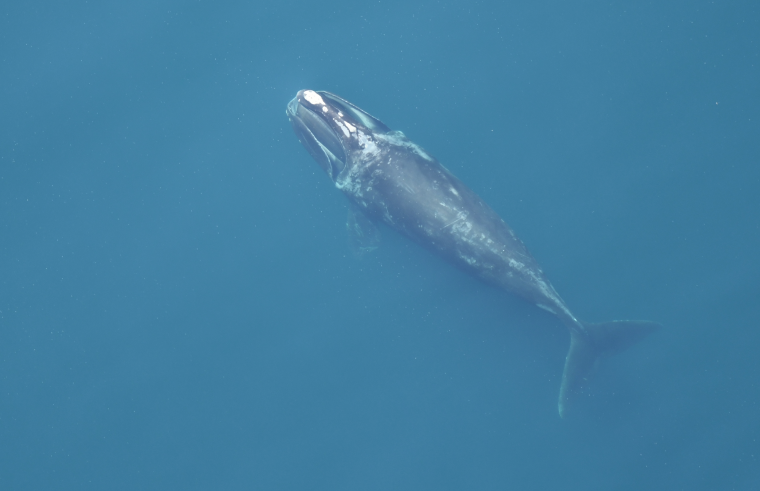2022 class of whales includes “Beaker,” “Jedi,” and “Medusa,” a mother who just recently gave birth to a calf

BOSTON, MASS. (Dec. 14, 2022) – Scientists have unveiled the new names of 20 catalogued North Atlantic right whales, an annual tradition that helps researchers in the field more easily identify individual whales with recognizable features.
**PHOTOS AVAILABLE HERE – SEE CREDIT INFORMATION IN FOLDER**
Researchers studying the critically endangered species, which has an estimated population of less than 350 individuals, must be able to correctly identify individual right whales in real time as they conduct field work, from collecting biopsy samples for genetic studies to capturing photos for long-term research. While each whale is assigned a four-digit number in the North Atlantic Right Whale Catalog to track sightings and other data, some scientists (and most non-scientists) find names easier to remember when recognizing whales in real-time by boat and plane.
“When choosing names for these whales, we try to find a unique, physical feature that can serve as a pneumonic device so when we see that whale in the field, we’ll say, ‘I recognize that heart-shaped scar—that’s Aphrodite!’” said New England Aquarium Senior Scientist Philip Hamilton, who manages the North Atlantic Right Whale Catalog.
The 2022 class, announced at the North Atlantic Right Whale Consortium’s annual meeting in October, features some creative selections along with playful, yearbook-style bios created by the New England Aquarium and Whale and Dolphin Conservation. “Jedi” (Catalog #2541) is named for his callosity pattern resembling a spaceship battle from Star Wars. “Beaker” (Catalog #4523) has a distinctive marking on his head that looks like the beloved Muppets character. The seven-year-old’s bio also indicates his favorite song is “The Rainbow Connection.” “Medusa” (Catalog #1208), a female that is at least 42 years old, has markings that resemble the adult stage of jellyfish, known as medusa. She was sighted just last week with a new calf off the coast of Georgia.
“Whale research is often complex or otherwise inaccessible to the public, so sharing this whale naming process in a lighthearted way allows people to not only become familiar with these individuals, but provides an inside look at some of the collaborative work being done by researchers,” said Monica Pepe, conservation and education policy manager at Whale and Dolphin Conservation.
Once a heavily-targeted commercial whaling species, the North Atlantic right whale remains vulnerable to human activities, including vessel strikes and entanglement in fishing gear. With an estimated 340 whales remaining, the species’ recovery is also threatened by low reproduction, shifts in prey, and climate change.
The New England Aquarium has one of the longest-running right whale research programs in the world, having extensively studied the animals for more than 40 years. Scientists focus on solutions-based work, collaborating with fishermen on new techniques to reduce deadly entanglements in fishing gear, conducting spatial analyses to assess risk from vessels, assessing the health impacts of human-caused injuries, facilitating communication across the maritime industry to reduce vessel strikes, and working with lawmakers locally, nationally, and internationally to develop science-based protections for the whales.
MEDIA CONTACT:
Pam Bechtold Snyder – psnyder@neaq.org, 617-686-5068
